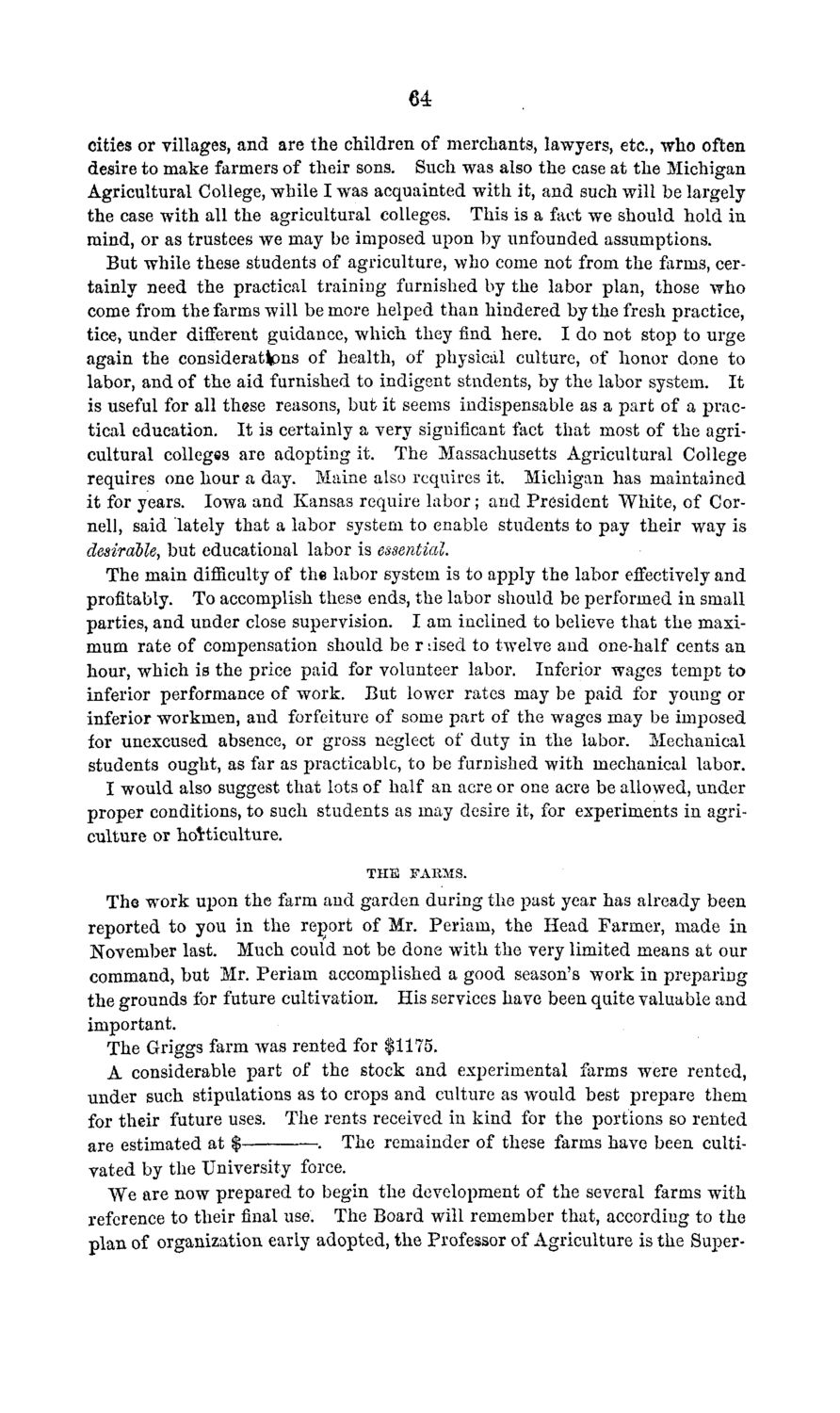| |
| |
Caption: Board of Trustees Minutes - 1869
This is a reduced-resolution page image for fast online browsing.

EXTRACTED TEXT FROM PAGE:
64 cities or villages, and are the children of merchants, lawyers, etc., who often desire to make farmers of their sons. Such was also the case at the Michigan Agricultural College, while I was acquainted with it, and such will be largely the case with all the agricultural colleges. This is a fact we should hold in mind, or as trustees we may be imposed upon by unfounded assumptions. But while these students of agriculture, who come not from the farms, certainly need the practical training furnished by the labor plan, those who come from the farms will be more helped than hindered by the fresh practice, tice, under different guidance, which they find here. I do not stop to urge again the considerations of health, of physical culture, of honor done to labor, and of the aid furnished to indigent students, by the labor system. It is useful for all these reasons, but it seems indispensable as a part of a practical education. It is certainly a very significant fact that most of the agricultural colleges are adopting it. The Massachusetts Agricultural College requires one hour a day. Maine also requires it. Michigan has maintained it for years. Iowa and Kansas require labor; and President White, of Cornell, said lately that a labor system to enable students to pay their way is desirable, but educational labor is essential. The main difficulty of the labor system is to apply the labor effectively and profitably. To accomplish these ends, the labor should be performed in small parties, and under close supervision. I am inclined to believe that the maximum rate of compensation should be r dsed to twelve and one-half cents an hour, which is the price paid for volunteer labor. Inferior wages tempt to inferior performance of work. But lower rates may be paid for youug or inferior workmen, and forfeiture of some part of the wages may be imposed for unexcused absence, or gross neglect of duty in the labor. Mechanical students ought, as far as practicable, to be furnished with mechanical labor. I would also suggest that lots of half an acre or one acre be allowed, under proper conditions, to such students as may desire it, for experiments in agriculture or horticulture. TH£ FABMS. The work upon the farm and garden during the past year has already been reported to you in the report of Mr. Periam, the Head Farmer, made in November last. Much could not be done with the very limited means at our command, but Mr. Periam accomplished a good season's work in preparing the grounds for future cultivation. His services have been quite valuable and important. The Griggs farm was rented for $1175. A considerable part of the stock and experimental farms were rented, under such stipulations as to crops and culture as would best prepare them for their future uses. The rents received in kind for the portions so rented are estimated at $ . The remainder of these farms have been cultivated by the University force. We are now prepared to begin the development of the several farms with reference to their final use. The Board will remember that, according to the plan of organization early adopted, the Professor of Agriculture is the Super-
| |